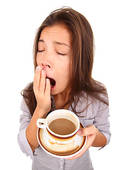
Why can’t I sleep?
Why it matters?
A survey conducted by the American Cancer Society concluded that people who sleep 6 hours or less per night, or who sleep 9 hours or more, had a death rate 30 percent higher than those who regularly slept 7 to 8 hours. Even those who slept 6 hours or less who otherwise had no health problems had death rates 1.8 times higher than those who slept “normal” hours.
Sleep is essential to LIFE!
What happens when we sleep?
Our brain goes through 4 stages of brain wave patterns that move us into deep rest and relaxation. The body goes into healing and restoration mode which is necessary to recover from the stress of the day, physical, emotional, or mental.
- “Wake up” or excitatory neuro-chemicals decrease
- “Relax” or inhibitory neuro-chemicals increase
- Adrenal gland repair
- Let go of our identification with the ego
What are the underlying causes of sleeplessness?
- stress (an easy guess)
- brain chemistry imbalance
- hormone imbalance
- environmental factors (noise, pets, partners moving at night, light disturbance, snoring)
- amino acid, mineral, or vitamin deficiency
- diet and lifestyle factors
- over 300 prescription drugs interfere with sleep
- genetics
Let me get more specific!
Stress = increase in cortisol, adrenaline and decrease natural serotonin, melatonin and GABA (sleep brain neurotransmitters). Our body chemistry is in AWAKE mode rather than sleep mode. Stress also burns up progesterone, a male and female hormone that helps us sleep. Can you handle stress well? Take this questionnaire.
Brain chemistry imbalance = Poor diet, lack of protein, vitamins, minerals, over-stressed, grief, depression, anxiety, lack of exercise all can cause this. It is very helpful to test our neurotransmitters to find out the exact imbalance and fix it. With sleep issues, typically the test reveals high adrenaline, low serotonin, yet each test result is unique to the patient.
Hormone Imbalance = usually during PMS times, or aging and menopause or “manopause” we have some sleep disturbance. High or low estrogen, low progesterone, low testosterone can cause insomnia. Testing to determine the imbalance is needed, and then restoring balance can be done using natural medicines quickly and easily.
Adrenal fatigue is also a factor, when we are not awake during the day, our body loses the diurnal rhythm of sleep/wake. Also, this can cause low blood sugar at night triggering us to wake up to eat!
Environmental factors = light, sound, movement, electricity, EMF’s, blue light from screens. We need to minimize these as best we can.
Protein and or Vitamin deficiency = from poor diet, poor digestion, absorption, or from not taking a high quality multivitamin. i.e. lack of magnesium – relaxes muscles, lack of iron = anemia, lack of amino acids or B6 = low tryptophan
Lifestyle factors = eating late (causes wake up when carbs kick in), drinking alcohol in the evening (releases adrenaline), lack of exercise (causes low tryptophan), coffee or caffeine from chocolate
Prescription drugs = benzodiazepines or anti-histamines, taken for more than 7 days can have long term effects of sleep disturbance. Taking Metformin depletes B12, taking birth control depletes B6.
Genetic testing is available and reasonable = check out 23andme.cmo, I can interpret the results for you.
Helpful suggestions
Reduce Stress!
- RELAX, especially when eating!
- exercise is the number one way to reduce stress in the body and mind
- meditation
- yoga or stretching
- learn to accept life as it is and let the past go
- acupuncture
- breathing techniques
Minimize environmental factors:
Buy some black out curtains, they are amazing! – any light will cause lower levels of melatonin; Use ear plugs, eye covers if you can; get to bed at the same time every night; avoid tv or use electronics the hour before you go to sleep (blue light depletes melatonin)
Test your neurotransmitters

- urine test taken at bedtime or when you wake up and cannot go back to sleep
results give a chemical fingerprint of what is happening in your brain and nervous system so we know exactly why you are not falling or staying asleep, and exactly how to correct the imbalance
- saliva testing is best, blood can be used as well
common deficiencies associated with sleep are cortisol, thyroid, estrogen, progesterone and testosterone
Essential sleep nutrients (depleted in many of us!)
Magnesium – the most common treatment I use – it detoxes adrenaline, calms nerves, relaxes muscles, helps those who get up frequently to urinate, and much more
Also important are calcium, vitamin C
B6 (P5P form is best)
B12 (methylated form is best)
amino acids such as L-tryptophan
GABA – amino acid, taurine are calming to nervous system
If you have GI issues and insomnia
- food intolerance or stool testing may be needed to restore the health of your digestive tract so you can properly digest and absorb nutrients. Most of our Serotonin is made and absorbed in the gastrointestinal tract. Serotonin is one of the most important calming, mood enhancing neurotransmitter.
Wake up times and emotions unresolved (Chinese medicine)
- Wake up at 1am – 3am You may have unresolved/accepted Anger
- Wake up at 3am – 5am You may have unfinished Grief

